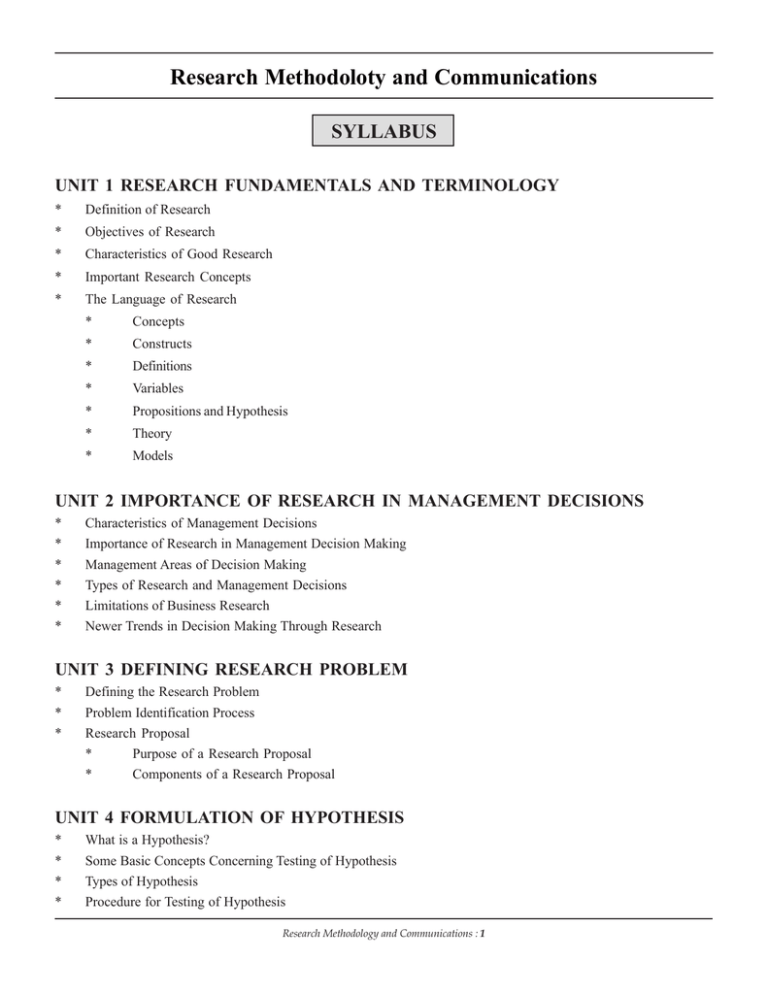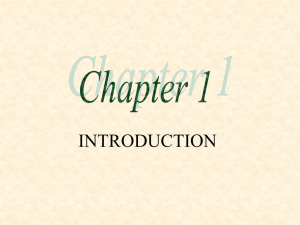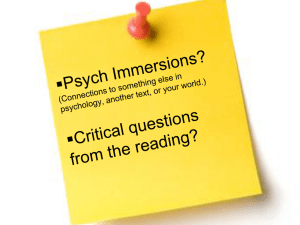Research Methodoloty and Communications SYLLABUS UNIT 1 RESEARCH FUNDAMENTALS AND TERMINOLOGY
advertisement

Research Methodoloty and Communications SYLLABUS UNIT 1 RESEARCH FUNDAMENTALS AND TERMINOLOGY * Definition of Research * Objectives of Research * Characteristics of Good Research * Important Research Concepts * The Language of Research * Concepts * Constructs * Definitions * Variables * Propositions and Hypothesis * Theory * Models UNIT 2 IMPORTANCE OF RESEARCH IN MANAGEMENT DECISIONS * * Characteristics of Management Decisions Importance of Research in Management Decision Making * * * Management Areas of Decision Making Types of Research and Management Decisions Limitations of Business Research * Newer Trends in Decision Making Through Research UNIT 3 DEFINING RESEARCH PROBLEM * Defining the Research Problem * * Problem Identification Process Research Proposal * Purpose of a Research Proposal * Components of a Research Proposal UNIT 4 FORMULATION OF HYPOTHESIS * What is a Hypothesis? * * * Some Basic Concepts Concerning Testing of Hypothesis Types of Hypothesis Procedure for Testing of Hypothesis Research Methodology and Communications : 1 UNIT 5 RESEARCH DESIGN * What is Research Design? * Classification of Research Designs * Exploratory Studies * Descriptive Studies * Causal Studies UNIT 6 EXPERIMENTAL DESIGN * What is Experimentation? * Various Concepts and Definitions * Conducting an Experiment * Validity in Experimentation * Classification of Experimental Designs UNIT 7 METHODS OF DATA COLLECTION * Primary and Secondary Data * Primary Data Sources * * Surveys * Observations * Interviews Secondary Data Sources UNIT 8 SAMPLING AND SAMPLING DISTRIBUTION * Some Basic Concepts * Census and Sample Methods * Sampling Methods * Sampling and Non Sampling Errors * Sampling Distribution * Law of Large Numbers and Central Limit Theorem UNIT 9 ATTITUDE MEASUREMENT AND SCALES * Concept of Measurement and Scaling * Measurement Scales * Statistical Analysis Based on Scales * Characteristics of Good Measurement * Sources of Error in Measurement * Scaling Techniques * Comparative Scales Research Methodology and Communications : 2 * Non-comparative Scales UNIT 10 REPORT WRITING AND PRESENTATION * Types of Research Reports * Research Report Components * Writing the Report * Considerations while Writing the Draft * Presentation Considerations UNIT 11 INTRODUCTION TO COMMUNICATION AND FACTORS INFLUENCING ITS EFFECTIVENESS * * The Communication Process Barriers to Effective Communication * Environmental Factors * Overcoming Environmental Factors * Individual Factors * Overcoming Individual Factors * Cultural Factors * Overcoming Cultural Factors UNIT 12 * * * * * * UNDERSTANDING BUSINESS COMMUNICATION What is Business Communication? Internal Communication External Communication Communication Flows in an Organization Prominent Communication Channels in Organizations Changing Landscape of Business Communication * Managing diversity through communication * Ethical communication Developing Skills for Effective Business Communication * Presentation Skills * Negotiation Skills * Giving and receiving feedback * Managing difficult converations. * UNIT 13 EFFECTIVE BUSINESS COMMUNICATION * Effective Business Communication – Organizational Context * Business Meetings * Business Presentations * Emails * Business Reports Research Methodology and Communications : 3 * Effective Business Communication – Importance for Individuals * Preparing Resume * Presenting Self UNIT 14 COMMUNICATING ELECTRONICALLY * Defining electronic communication * Types of electronic communication * * * Emails * Voicemails * Videoconferences * Electronic newsletters and brochures * Screensavers * Intranet * Social media platforms Evaluating the utility of electronic media * Advantages * Limitations / challenges Tips for using the electronic media effectively UNIT 15 LEADERSHIP COMMUNICATION * Defining leadership * Focus of leadership communication * * Building organizational identity and image * Building stakeholder commitment by aligning their interests * Seeking stakeholder feedback * Shaping organizational culture * Building high performance teams * Conducting / managing difficult conversations * Delivering good, bad or neutral messages / decisions * Choosing an effective medium of communication Skills / attributes for effective leadership communication * Understanding self as a leader * Practice reflection * Presenting self as a leader Research Methodology and Communications : 4






